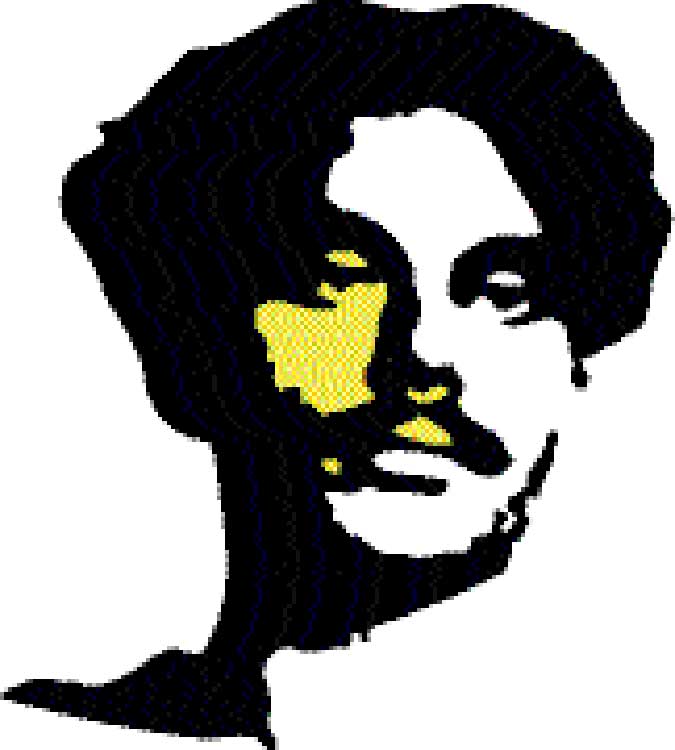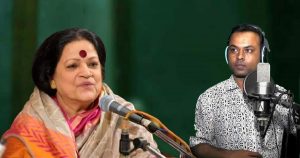The two-day long divisional level National Nazrul Conference ended in
Barisal Saturday night at Ashwini Kumar Hall of the city with calling
for collective initiatives to popularise Nazrul songs and spreading
study on life and woks of the poet.Participants of the programme said the songs of Kazi Nazrul Islam, the
national poet of Bangladesh, like his literature, also bearing the
theme of not only for love and devotion but also expressed strong
protests against various forms of oppression — slavery, communalism,
feudalism and colonialism.
The programme was organized by Nazrul Institute under the ministry of
cultural affairs.
Shohidul Alam, deputy commissioner, Barisal presided over the
programes of the concluding day divided in to three sessions of
training of 40 local artists of Nazrul Geeti, discussion on poetry of
Bangladesh and Nazrul, Songs of Nazrul in Bagladesh, cultural
functions of recitations, songs, dances based on the works of the
poet, certificate distribution among the trained Nazrul Geeti artists.
The sessions were addressed among others by Prof. Dr. Rafiqul Islam,
professor emeritus and chairman Nazrul Institute Trustee Board, Prof.
Soumitra Shekhar of Dhaka University, Abdus Sobhan Sikdar, secretary
public administration ministry, Dr. Ranjit Kumar Biswas, secretary
cultural ministry, Rashid Haider, executive director, Farid Ahmed
Bhuiyan, secretary Nazrul Institute, Khikhil Kazi, descendant of Kazi
Nazrul Islam.
Professor Rafiqul Islam, Professor Emeritus and chairman Nazrul
Institute Trustee Board, delivering his speech and talking with this
correspondent at Barisal Circuit House, said Nazrul has enriched the
music industry by providing over four thousand songs. His mastery
enriched almost every genres of Bangla music such as ghazal, kirtan
(devotional songs), romantic songs, revolutionary songs and many
others. However, ‘the popularity of Nazrul Sangeet was at its peak in
1920s to 1930s. But the period of ‘40s is proved to be the most
crucial time for Nazrul Sangeet as Kazi Nazrul Islam himself became
ill and Nazrul Sangeet was practiced in a distorted way and publicized
in the name of modern song in Kolkata. The political scenario became
very turbulent because of partition of Bengals, communal conflicts
and war, flawed presentation, reluctance of production houses and
media, aggression of western music and many others,’ Nazrul exponent
professor Dr Rafiqul Islam told.
But in the contemporary context when the media is expanding its
horizon everyday and while Dhaka became a hub of practicing and raring
of Bengali culture then Nazrul Sangeet is not reaching to the expected
number of people, the Nazrul exponent told.
The speakers urged to convey the message of non-communal humanity and
dignity that Nazrul reverberated in his poetry and songs to the world
and find the relevance of Nazrul’s poetry and songs in the present
world brimming with violence, fundamentalism and bigotry.
Khalid Hossain, Yaqub Ali Khan, Lina Taposhi Khan, Selina Hossain,
Shaid Kabir Palash, famous Nazrul Sangget singers, recitation artist
Shima Islam, different singers and musicians of Nazrul Institute,
participated in the cultural performance part of the programme.
‘Only the practice won’t work, if the understanding of the deeper
meaning of each song and poems is not properly executed to portray the
emotion of those and understand the philosophy behind those,’ they
added.
‘With the boom of electronic media, popularisation of Nazrul Geeti’
and poems should be more easy if the singers, performers and the media
play a responsible role,’ said the audiences participated in the
programmae.
(Our Corespondent)




